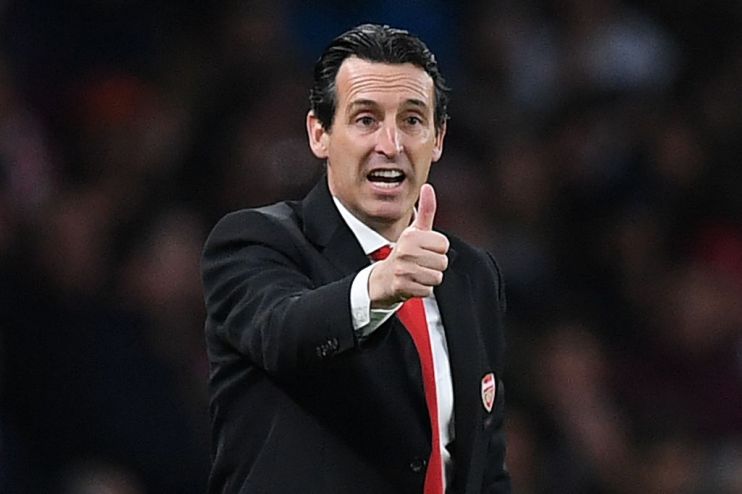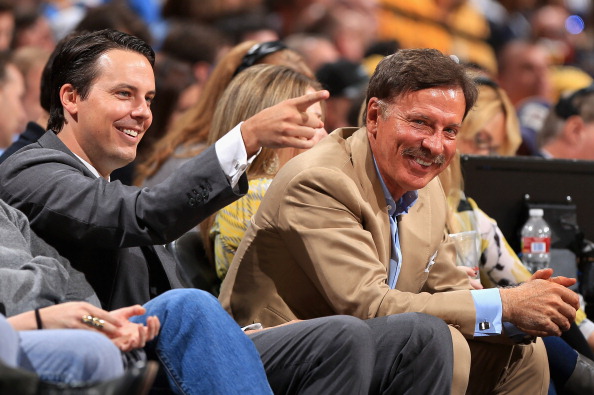If Arsenal have to sack Unai Emery, at least they are finally well placed to manage the change

However bad the team’s current malaise may seem for Arsenal supporters – and how much the Unai Emery-orchestrated on-field disarray might escalate – there is one element of the club’s recent evolution that offers some succour.
Where once the Gunners looked rudderless at the very top, a club drifting under the distracted eye of an absentee owner and, as such, ill equipped to manage change, a series of developments which crystallised over the summer have improved that position.
The upshot is that, if Emery proves unable to stem the flood of goals conceded, lift a mood darkened by the Mesut Ozil and Granit Xhaka rows and reverse the team’s slide down the Premier League, Arsenal are at least in a better state to act.
Read more: Liverpool KO Arsenal on penalties after Anfield goal-fest
Perhaps the most significant movement of the club’s close season was Josh Kroenke’s emergence as a proactive face and voice of Arsenal’s owners, whose long-time reticence in engaging with supporters had given some the impression of arrogance, apathy or both.
Kroenke wrote an open letter to fans on 16 July, addressing concerns raised in a statement issued by an alliance of supporter groups and publications that he and his father, Stan Kroenke, had been guilty of “passive ownership”.
He followed that up with two wide-ranging interviews in late August which, in conjunction with a well-publicised visit to the club’s pre-season training camp in the United States, represented a distinct change in tack from Kroenke Sports Enterprises.
The messaging may have sounded rehearsed, but the fact that Kroenke Jr was speaking to fans and making himself seen was at the very least an improved public relations strategy and hinted at something deeper: a hands-on owner taking charge at last.
Ljungberg’s new role
Another significant development was the reassignment of Freddie Ljungberg from his role as coach of the club’s under-23 side to Emery’s assistant on the first team, a job swap that involved long-time No2 Steve Bould reverting to the academy.
Ljungberg’s effective promotion was touted as a means to ease the integration of talent from Arsenal’s production line to the senior set-up, while reintroducing one of the famed Invicibles team into a more influential and prominent position.
But it also put in place a safety net of sorts. Should a new man hastily be required to take the reins from Emery then Ljungberg, who has managerial ambitions of his own and is seen as understanding the fabric of the club, would be ideally placed.

Recruiting another Invincible, in former Arsenal and Brazil midfielder Edu Gaspar, as the club’s new technical director was the other notable gambit in a summer of profound change.
As well as – like Ljungberg – representing a link to the team’s most glorious period in living memory, Edu returned to north London to feed into an overarching strategy and provide a continuity of vision that exists independent of the main man in the dugout.
In essence, he is there to provide a link between the board and the coaching staff. In practice, the role also ensures that a club is not reliant on the manager to dictate direction, as they were in the Wenger era.
Borrowed time
This isn’t the first time Arsenal have tried to modernise their structure.
Former chief executive Ivan Gazidis hired transfer guru Raul Sanllehi, super-scout Sven Mislintat and fitness expert Darren Burgess to prepare for Wenger’s exit.
The shake-up backfired, with Mislintat, Burgess and Gazidis leaving – the latter after anointing Emery.
Read more: What football can learn from how VAR was used in the Rugby World Cup
The hope will be that Emery engineers an upturn in results, starting on Saturday, when Wolves visit Emirates Stadium hoping to become the latest team to give Arsenal a bloody nose.
But amid a growing sense that the Spaniard is on borrowed time, the Gunners’ hierarchy does finally look ready and able to manage a change of manager.
Main image credit: Getty
